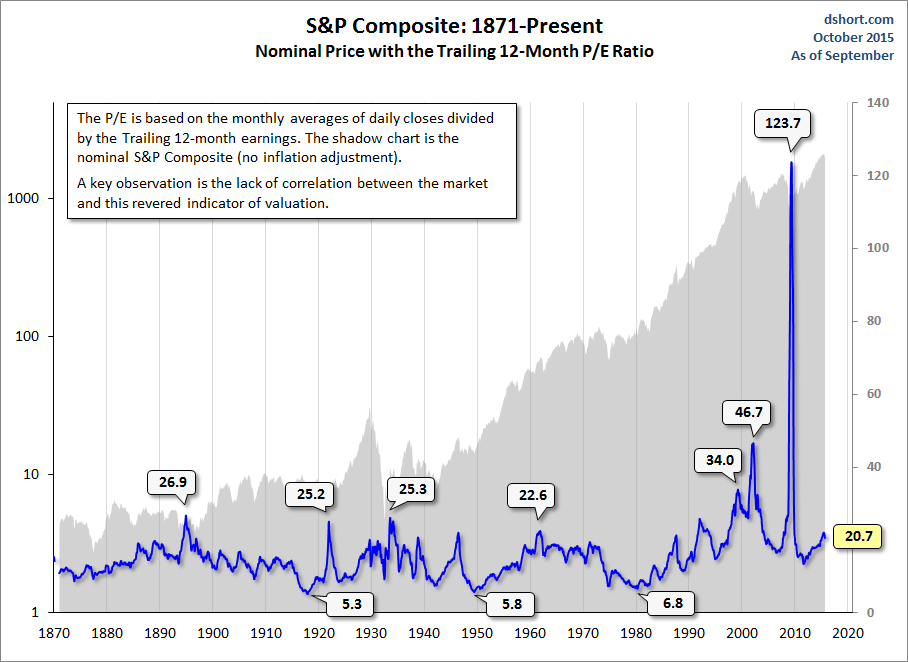Ever since I started this site, there was concern that the market was overpriced. There are concerns about a bubble and concerns that the actions of the Fed are overheating the stock market. The concerns are typically about the P/E ratio of the general market. The price-to-earnings ratio, or P/E ratio, is an equity valuation multiple. It is defined as market price per share divided by annual earnings per share. When used for “the market” it is the combined price per share of an indicator (perhaps the S&P 500) divided by the annual earnings of those same companies.
People will try to assume that that market is overpriced based on historical norms of the P/E ratio over time.
But what are historical norms worth and what is overpriced and what is cheap? The average P/E ratio since the 1870’s has been about 16.6. But the disconnect between price and TTM earnings during much of 2009 was so extreme that the P/E ratio was in triple digits — as high as the 120s — in the Spring of 2009. In 1999, a few months before the top of the Tech Bubble, the conventional P/E ratio hit 34. It peaked close to 47 two years after the market topped out. When we have had concerns with inflation or when earnings were bad, it has been at 12 or 13 times earnings and for a time in the single digits.
So we can’t look at it in a vacuum. Stocks may not be a bargain, but bonds are downright expensive. With such low natural interest, stocks need to be the investment vehicle of choice. As this graph shows, there is very little correlation between the market price and the P/E ratio.

The market is made up of pieces of paper that involve the ownership of different companies, and while there are some expensive stocks out there, we’ve got plenty of cheap ones.
I will concede that if you are investing in a company that is not currently profitable, then you are probably paying too much for that company. It is almost impossible that you can be confident in your investment in a company that is not making money.
If you follow my advice on this site, the general market P/E ratio should have little effect on your portfolio. As a Confident Investor you aren’t invested in the market, you are invested in individual companies, and we watch them to make sure that the herd mentality of the market doesn’t move against us.
Even in bad economies, the Confident Investor Rating – Good companies should continue to be good companies to own. If they aren’t, then they will quickly drop from the Good category to the Fair or Poor category!
In fact, if a stock is moving up in price then it is obviously not overpriced. Even if you believe that the general market is overpriced, that rising stock is not overpriced according to its investors.